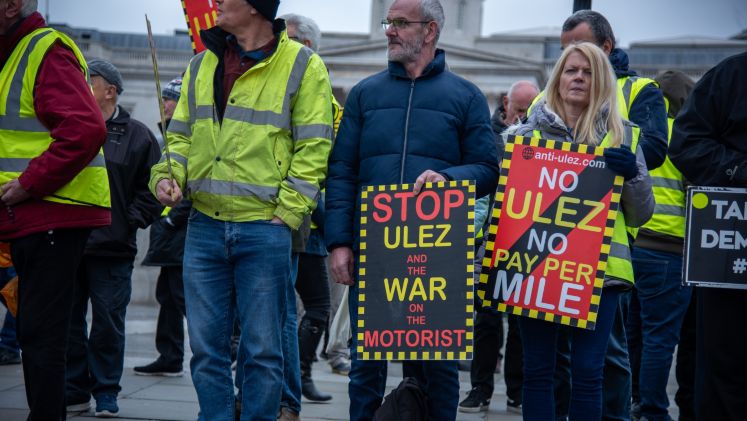The shift from the supplementary vote system to first past the post in the recent local elections has produced some odd results, with candidates able to win the vote with just over a third of voters supporting them. To avoid wasted votes, and give a stronger democratic mandate to the victors, we should return to a preferential voting system, argues Ian Simpson.
The recent mayoral and Police and Crime Commissioner elections took place under a First Past the Post (FPTP) system, where people are able to put just one “X” on their ballot – choosing only one of the candidates. This often leads to outcomes where many voters are ignored and candidates are able to win on a low share of the vote. For example, Labour’s David Skaith won the new position of York & North Yorkshire mayor with little more than one-third of the vote (35.1 per cent). Meanwhile, the Conservative’s Philip Wilkinson became Wiltshire’s PCC with fewer than one-third of votes cast (31.0 per cent).
In the London mayoral contest, despite achieving a comfortable victory, by our measure Sadiq Khan received the lowest proportion of votes in any of the seven London mayoral contests to date.
In the hotly contested West Midlands mayoral election, Labour’s Andrew Parker (37.8 per cent) beat the Conservatives’ Andy Street (37.5 per cent) by just 0.3 per cent, or 1,508 votes out of a total of 601,828 ballots cast. In the London mayoral contest, despite achieving a comfortable victory, by our measure Sadiq Khan received the lowest proportion of votes in any of the seven London mayoral contests to date. Khan received the backing of just 43.8 per cent of voters*.
There are ways of voting for individual elected positions that would ensure fewer wasted votes and a greater democratic mandate for the victor. Unfortunately, the Elections Act 2022 abolished such alternative voting arrangements for mayors and PCCs.
There are ways of voting for individual elected positions that would ensure fewer wasted votes and a greater democratic mandate for the victor. Unfortunately, the Elections Act 2022 abolished such alternative voting arrangements for mayors and PCCs.
The legislation scrapped the use of the Supplementary Vote (SV) system for electing mayors in England and Police and Crime Commissioners (PCCs) in England and Wales. SV is a preferential voting system that allows people to cast first and second preference votes. If no candidate receives more than half of first preference votes, the two candidates with the most votes go through to a second round. All other candidates are eliminated and any second preference votes their supporters have cast for either of the top two candidates are transferred to that candidate. After a second round, the winner is the candidate who has the highest number of combined first and second preference votes.
Another way of potentially electing people to individual positions, such as mayors and PCCs, is via the Alternative Vote (AV). Under AV, voters are able to rank as many candidates as they like in order of preference, giving them the opportunity to express an even greater breadth of preference than under SV. However, the SV system is definitely better for voters than the FPTP system.
Analysis by the Electoral Reform Society reveals that at the previous set of PCC elections, in May 2021, prior to the abolition of SV, no winning candidate was elected with the support of fewer than 40 per cent of voters, either in the form of a first preference vote or a second preference vote transferred from an eliminated candidate. The same was true of the mayoral elections that took place on the same day. However, in the 2024 set of mayoral and PCC elections, held on 2 May, there have been numerous examples of this, with winning candidates often being elected on reduced mandates, as shown above.
As the Institute for Government’s Jill Rutter pointed out “the scrapping of the supplementary vote in favour of first past the post…risks reducing voter choice and ultimately may damage the position of mayor”.
Results from the London Assembly election, held under the proportional Additional Member System (AMS), on the same day as the London mayoral election, also indicate that the move to FPTP for the mayoral election meant some voters felt the need to suppress their true first preference for mayor and vote tactically, something that would have been unnecessary under a preferential voting system. In the proportional, London-wide, part of the Assembly election, both the Green Party vote share (11.6 per cent) and the Labour vote share (38.4 per cent) were virtually unchanged compared to the results in 2021. However, in the mayoral contest, Zoe Garbett’s (Green Party) vote share was down two points at 5.8 per cent and Sadiq Khan’s vote share was up nearly four points, at 43.8 per cent. On the other side of politics, there was also a discrepancy between Reform UK’s London-wide Assembly vote share (5.9 per cent) and their mayoral candidate, Steve Cox’s, vote share (3.1 per cent). Meanwhile, the Conservative mayoral candidate, Susan Hall (32.7 per cent) outperformed her party’s London-wide vote share (26.2 per cent). As the Institute for Government’s Jill Rutter pointed out “the scrapping of the supplementary vote in favour of first past the post…risks reducing voter choice and ultimately may damage the position of mayor”.
In the PCC elections that took place throughout England and Wales, fifteen of the thirty-seven victors (40 per cent) secured their win with the support of fewer than 40 per cent of voters. No PCC fell below 40 per cent support when these elections were last held, under SV, in 2021.
In terms of both voter choice and democratic mandate, a return to a preferential voting system for mayoral and PCC elections is a must.
In terms of both voter choice and democratic mandate, a return to a preferential voting system for mayoral and PCC elections is a must.
* For the London mayoral contests held under SV, the lowest figure was the 44.4 per cent of votes for Ken Livingstone in 2004, which includes voters who gave him their first preference vote and those whose support was transferred to him in the second round.
All articles posted on this blog give the views of the author(s), and not the position of LSE British Politics and Policy, nor of the London School of Economics and Political Science.
Image credit: Melinda Nagy on Shutterstock







